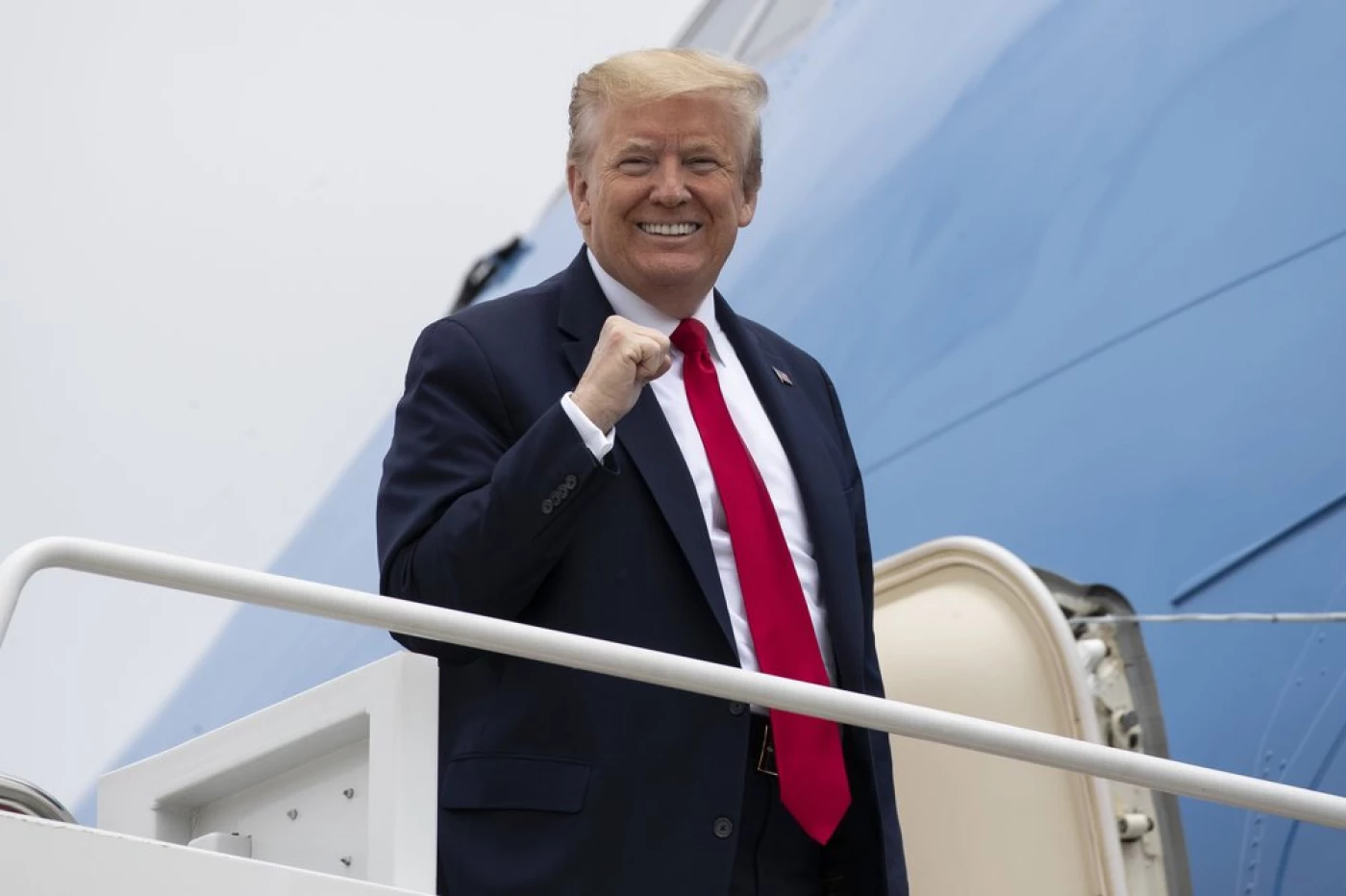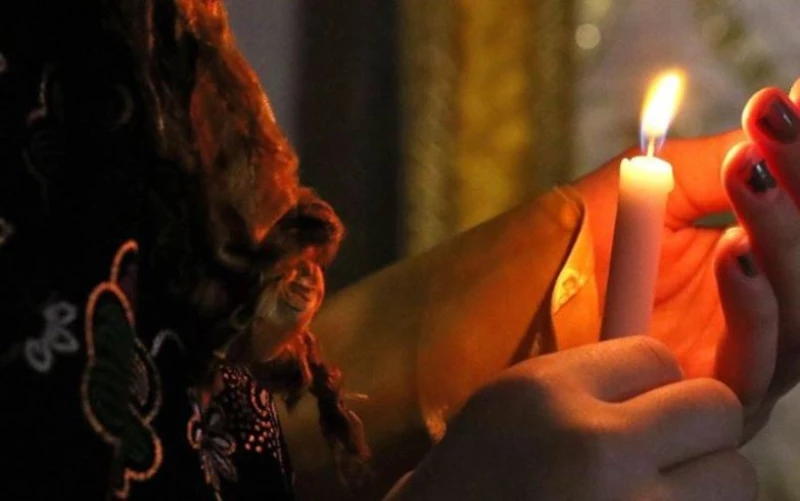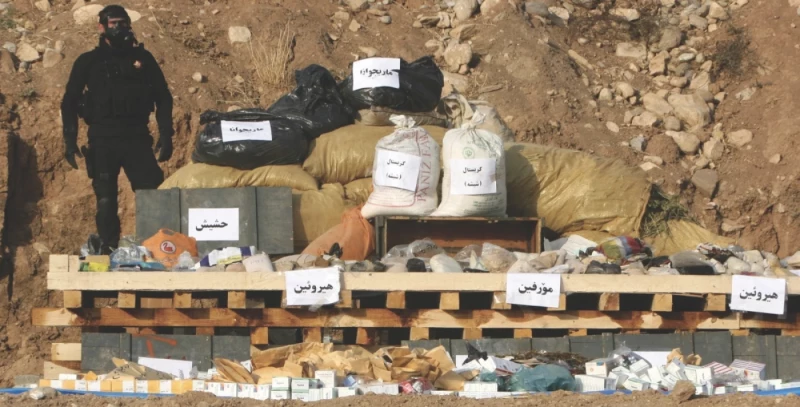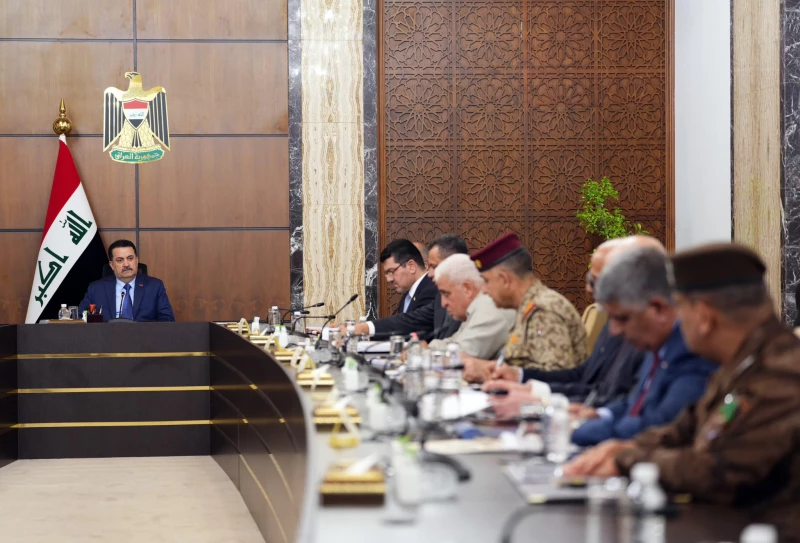DUBAI, UAE - Iraq will have to maintain its diplomatic relationship with the United States following Donald Trump’s reelection as the US President, despite an outstanding Iraqi arrest warrant against him, a legal expert said Wednesday.
In an interview with The New Region, legal and political affairs expert Habib al-Quraishi said Iraq was “unlikely to act on the warrant” as the two countries' relations are governed based on international law and treaties.
“Iraq will deal with the new president, Donald Trump, irrespective of the arrest warrant that was issued,” Quraishi said, believing Trump would not visit Iraq during his second term.
The Iraqi judiciary issued a warrant for Trump on January 7, 2021, through the Al-Rusafa Investigation Court in Baghdad. The warrant was issued as part of an investigation into the US strike that killed Qassem Soleimani, commander of Iran’s Quds Force, one of the five branches of Islamic Revolutionary Guard Corps (IRGC), and Abu Mahdi al-Muhandis, Chief of Staff of the Popular Mobilization Forces (PMF).
At the time, the judiciary stated that the warrant was issued based on Article 406 of the Iraqi Penal Code, which governs crimes of premeditated murder.
Iraq’s Supreme Judicial Council President Faiq Zidan previously underscored Iraq’s position, saying, “We issued an arrest warrant for Trump and will not hesitate to take legal measures.”
Quraishi explained that foreign heads of state, including the US president, enjoy immunity from prosecution by other countries’ legal systems.
“Legally, this warrant cannot be enforced against the US president, as he has immunity from foreign prosecution,” he said. “Foreign heads of state cannot be prosecuted in another country’s judiciary, as stipulated by international law.”
The legal expert added that the only scenario in which an arrest warrant might be enforceable against a sitting leader would involve the International Criminal Court (ICC) issuing such an order.
This issue comes amid ongoing diplomatic pressures on Iraq concerning security challenges and regional conflicts. In a phone call on Tuesday, US Secretary of State Antony Blinken urged Iraqi Prime Minister Mohammed Shia’ al-Sudani to exert control over armed groups launching attacks from Iraqi territory.
According to a statement from the US Department of State, Blinken and Sudani also discussed efforts to end the war in Gaza, secure the release of hostages, and promote diplomatic solutions in Lebanon to allow citizens on both sides of the Blue Line to return to their homes.
In his conversation with Sudani, Blinken stressed the importance of Iraq fulfilling its obligations to protect US personnel and prosecute those responsible for attacks on American assets in Iraq and Syria, especially those involving Iran-aligned militias. He emphasized the importance of keeping Iraq out of regional conflicts and urged that the Iraqi government take control over armed groups conducting unauthorized attacks from its territory.
In light of reports that Iran is planning a coordinated military strike on Israel involving Iraqi territory, a recent US intelligence report warned of possible severe consequences, including an Israeli retaliation that could bring significant risks to Iraq.
American news outlet Axios on Tuesday reported that the IRGC has been moving drones and ballistic missiles to Shiite militias in Iraq in preparation for a potential joint attack on Israel, citing intelligence sources.
To address these threats, Blinken and US National Security Advisor Jake Sullivan recently called Sudani, urging him to take preventive actions and expressing serious US concerns over a potential Israeli retaliation, according to the Axios report.


 Facebook
Facebook
 LinkedIn
LinkedIn
 Telegram
Telegram
 X
X



